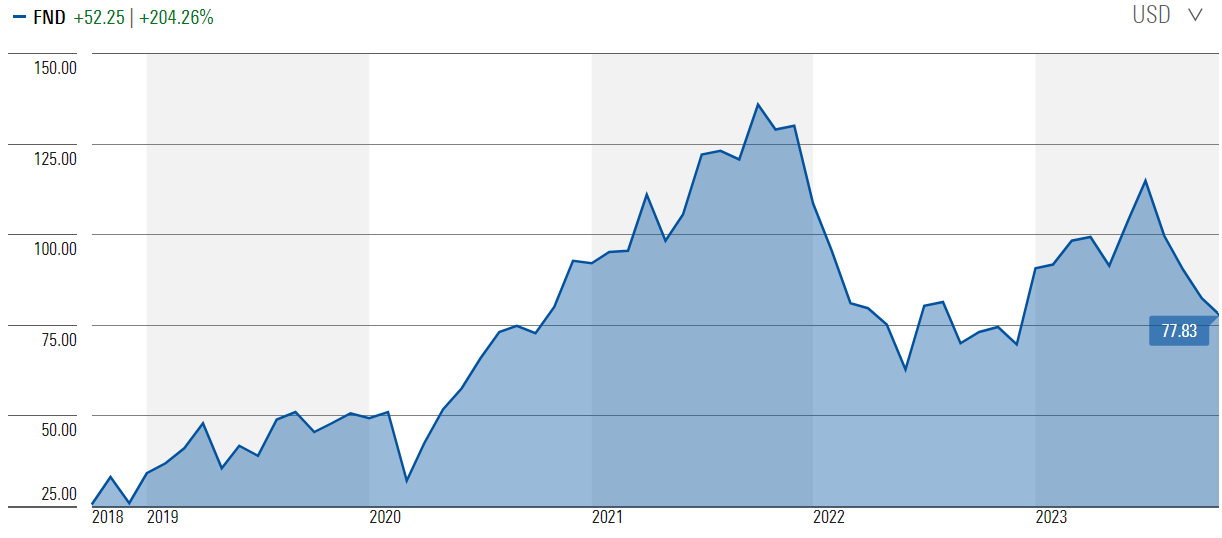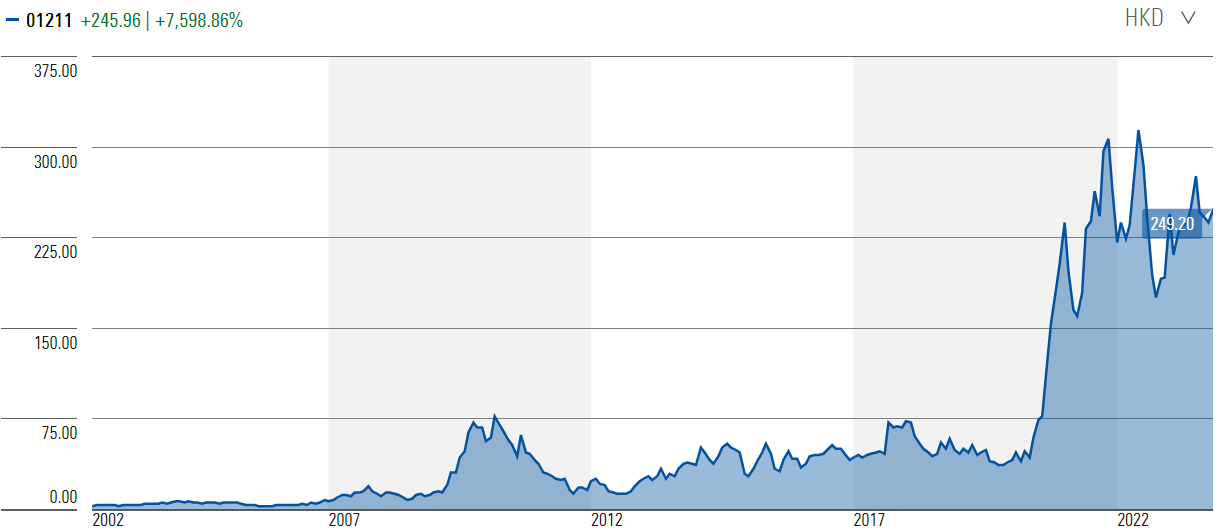Charlie Munger on Buffett, gambling, Apple, and China
Munger is best known as Warren Buffett’s sidekick though he’s a formidable investor in his own right. In a rare interview, he sheds light on Buffett's career and recent investments.
Charlie Munger is best known as Warren Buffett’s sidekick though he’s a formidable investor and investment thinker in his own right.
Munger first met Buffett in 1959 through a mutual friend. A doctor in their hometown of Omaha, Dr. Edwin Davis, told Buffett in 1957 that he trusted him to manage money because Buffett reminded him of someone called Charlie Munger. “Well, I don’t know who Charlie Munger is, but I like him,” Buffett responded to Davis. Two years later, Davis arranged for the pair to meet, and they hit it off right away.
Munger was originally a lawyer by trade. He started his own investment firm in 1962 and went on to crush the market over the following 13 years, compounding his portfolio at 19.8% per annum compared to the Dow Jones Industrial Average’s 5%.
In 1978, Munger became Vice Chairman of Berkshire Hathaway, a position he still holds today. Munger is credited for helping change Buffett’s investment approach from buying cheap, often low-quality companies, to purchasing great companies at reasonable prices.
Munger is 99 years of age yet retains a sharp mind and wit. Recently, he gave a rare interview to the Acquired podcast and offered some great insights on a range of investment topics.
Munger and Buffett’s investment approaches
Buffett got his first taste of investing as a young man at the racetrack. Munger was asked about this, and his response gives a key insight into the way that Buffett approaches the stock market:
There are many famous investors who started out as gamblers – Edward Thorp, Bill Gross, and Jeff Yass come to mind. Buffett is also in this bracket. He took the mindset of an expert gambler – betting when the odds are overwhelmingly in your favour - and parlayed that into investing.
On his own investment approach, Munger gave a surprising answer. Though he’s known for liking stocks that earn high returns on capital over long periods, Munger acknowledged that’s not the only way he invests:
Buffett’s big Costco error
In 1997, Costco (NYSE: COST) offered Buffett a seat on the board, which he declined. Buffett suggested Costco ask Munger instead, and Munger accepted. He's been on the board ever since.
Munger tried to convince Buffett to invest in Costco early, though it didn’t work. The reason: “Warren doesn’t like retailing”. Apparently, Buffett had seen many retailers come and go, including big department stores like Sears, and thought it a difficult business to make money from.
Munger thought differently, and recognized early on that Costco had an incredible business model:
Costco share price

Source: Morningstar
What makes a great retailer
Munger says Home Depot took the Costco business model and applied it to home improvements: “They copied everything”.
Munger believes there’s a more modern Costco imitator in a smaller company called Floor & Décor (NYSE: FND). As the name suggests, the business sells flooring, offering a huge selection via large warehouses, and with cheap prices to boot.
Floor & Décor share price

Source: Morningstar
Munger was asked about whether he’d ever looked at Nike as a business, and he said he had, though he rejected it because it’s a ‘style company’. Munger didn’t elaborate on this though I suspect what he’s alluding to is that with ‘style companies’, future prospects and earnings are difficult to forecast and that is not the type of business that he likes to invest in.
Munger prefers capital-light retailers with predictable earnings and pricing power:
Berkshire’s investment in Apple
Buffett's most high-profile recent investment is in Apple (NASDAQ: AAPL). He first purchased a stake in 2016 and it's since been a home run. Berkshire now owns 5.8% of Apple, worth around US$164 billion. Apple accounts for close to 50% of Berkshire's stock portfolio.
Apple share price

Source: Morningstar
Munger’s take on the lessons from Berkshire’s investment is intriguing:
This seems to be a recognition that when you’re a big investor like Berkshire, you must be invested in some of these great technology companies, or risk underperformance.
As for why Berkshire picked Apple, Munger says it was valuation, as the company got down to around 10x earnings when Buffett bought in.
Buffett’s investment in Japan trading companies
Buffett’s other recent investment success has come from the unlikely place of Japan. He first started investing in Japanese trading companies in 2020 and retains stakes in five of them (Mitsubishi Corp., Mitsui & Co., Itochu, Marubeni and Sumitomo Corp).
Munger implies that there was leverage involved in the purchases. He says at the time, you could borrow in Japan at 0.5% for 10 years, and these stocks had cheap assets and dividend yields of 5%, making them “no-brainer” investments:
Why he likes China
Munger has been a long-time investor in China. He persuaded Buffett to invest in automaker, BYD (HKG: 1211), in 2008. Munger has since called this one of the best decisions that he's ever made.
Munger claims the BYD founder, Wang Chuanfu, is a genius, and says he’s better at making things than Elon Musk.
BYD share price

Source: Morningstar
In the interview, Munger doesn’t address his more recent investment in online retailer, Alibaba, which hasn’t worked out thus far.
On China itself, Munger remains a believer:
Choice words for John Malone and Jim Simmons
Munger is known for his blunt manner, and he doesn’t hold back on a few subjects. One is US billionaire, John Malone, who owns Formula One and the Atlanta Braves baseball team, among other things. Malone is credited with the rise of Ebitda (Earnings before interest, tax, depreciation, and amortization) as a financial term used by corporates, one that Munger has long abhorred. Munger says he’s never liked Malone’s “extreme manipulations”, including his famous methods of minimizing tax at his listed companies.
Munger also says he’s uncomfortable with investors who principally use algorithms like the famous hedge fund, Renaissance Technologies. He says these funds essentially front run investors. And Munger believes that they’re making smaller profits with more volume, and the only way that they’re still making good returns is through using greater and greater leverage, “which I would not run myself”.
James Gruber is an assistant editor at Firstlinks and Morningstar.com.au

